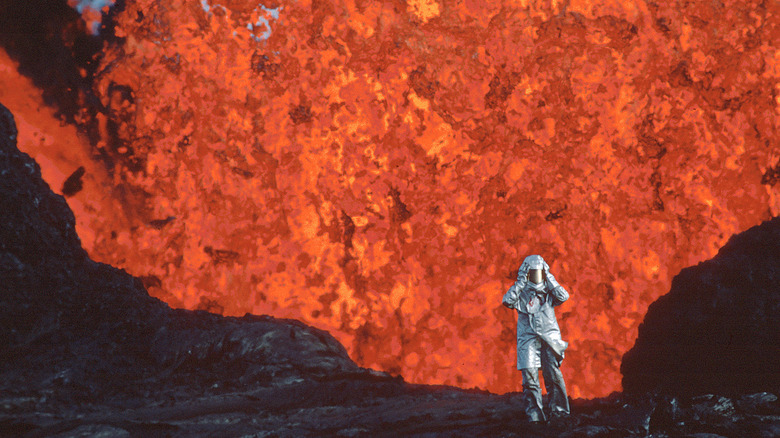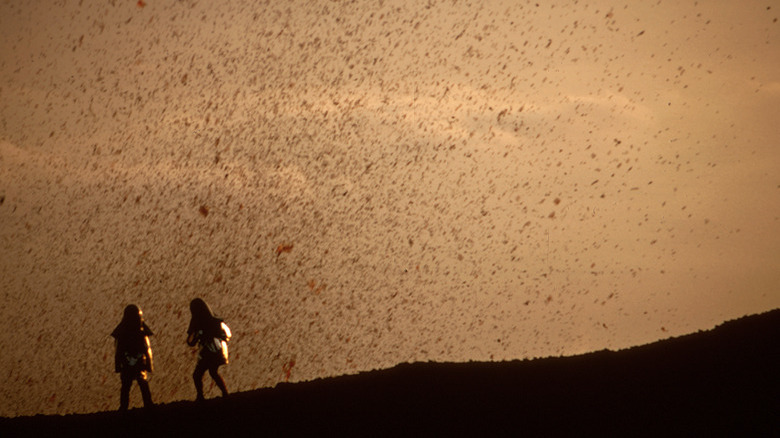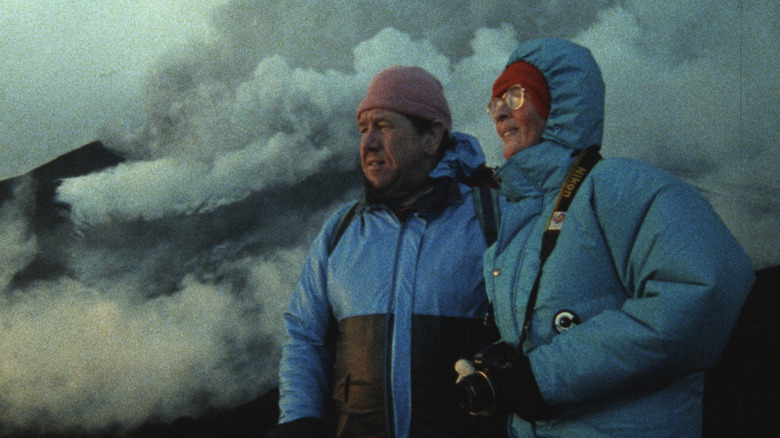Fire Of Love Review: A Mesmerizing Portrait Of The World's Best Volcanologist Power Couple [Sundance 2022]
"Once you see an eruption, you can't live without it," Katia Krafft once wrote. And when you see the jaw-dropping footage she and her husband Maurice captured of volcanoes around the world, you'll understand why the two became obsessed with studying these natural phenomena. For decades, Katia and Maurice were two of the biggest names in the emerging field of volcanology, leading the charge to better understand exactly how volcanoes work, and getting dangerously close to eruptions in the name of science. In addition to scientists and explorers, they were filmmakers and authors, shooting hundreds of hours of footage, making documentaries, and writing books which helped spread the knowledge they accumulated from their expeditions. "Fire of Love," a new documentary from director Sara Dosa, largely uses Katia and Maurice's own archival work to craft a mesmerizing account of their love affair with volcanos and each other.
The Kraffts Were Like Guides to Another World
The movie's biggest draw is the truly incredible footage Katia and Maurice captured from the 1970s until the early 1990s. Watching orange and deep-red lava bubble and erupt and form fast-moving rivers is utterly hypnotic; on my couch, I found myself completely transfixed and fully immersed into this unfamiliar world, so I can't imagine how awesome the experience would be to watch this on an IMAX screen. The French couple devoted their entire professional lives to volcanoes, but through behind the scenes footage, excerpts of their written words, and effective narration from indie darling Miranda July, Dosa also gives us a sense of the sometimes-playful relationship between the two, making this a human story as much as one about the immense power of nature. With their red beanies, the two often look like characters from a Wes Anderson movie, and Maurice's footage, with its snap zooms and considered framing, sometimes feels Andersonian as well. When she isn't letting the Kraffts' footage do the heavy lifting, Dosa utilizes a snazzy French New Wave style to buoy the rest of her story; thankfully, she only uses it to add a bit of stylistic flair, and never enough to be distracting.
The film is frequently fun and lighthearted, but it's not all globe-trotting, TV appearances, and good-natured ribbing. In 1980, Mount St. Helens erupted with the force of 25,000 atomic bombs, killing 57 people. As Katia and Maurice survey the aftermath from a helicopter above, the blankets of ash make the site look like an alien landscape. But the movie's darkest moment is far, far worse — and an indictment of governments that refuse to act when science provides a clear warning. In 1985, Colombian officials received warnings about volcanic activity near the town of Armero and recommendations to evacuate the town. But those in charge deemed the recommendation too expensive, so it was ignored. Sure enough, a volcano erupted that November, sending a burning mud flow into the town and killing as many as 25,000 people. The Kraffts were able to use that tragic, preventable event to inspire other governments to act and save lives when similar rumblings occurred, but watching this, you can't help but think about our own government's wildly inadequate steps to mitigate the effects of climate change.
They Died as They Lived
In the summer of 1991, the Kraffts flew to Japan to photograph eruptions at Mount Unzen, but were caught unaware by one and killed, along with dozens of other people in the area. In a Q&A after the film's Sundance premiere, the filmmakers stressed how important it was that this movie not focus on the Kraffts' deaths, but instead detail the extraordinary lives they lived. I understand and appreciate that approach, but at the same time, some more context to the circumstances of their deaths would have been greatly appreciated. I don't need any overly grisly details, but after spending the entire movie watching how methodical the two were, I wish I came away with a better understanding of the geological processes which caught them off guard.
Still, "Fire of Love" is a riveting portrait of a charismatic couple who lived life on the edge. It's a total crowd-pleaser, and while I applaud Sundance for going virtual this year out of safety concerns, I hope this movie will be released into an environment in which people can see this with an actual crowd — and on the biggest screen possible.
/Film Rating: 9 out of 10


